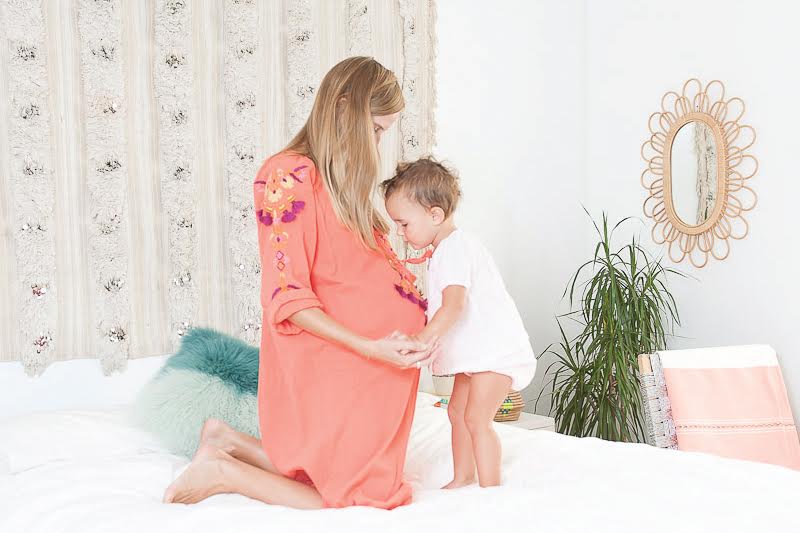
10 Tips for Preparing your Child for a Sibling
Written by Sara Langer
Photography by Chloe Fleury photographed by Sabrina Bot
You’ve decided to expand your family and a new little one is on the way. Just like your first pregnancy, you are likely experiencing a range of emotions (hello, hormones!). One minute you’re ecstatic and the next you’re feeling overwhelmed and nervous. The first time around it was all about you (and your partner), but now you have another little person to consider when it comes to how the new baby will fit into your existing family life. We spoke with Brenda Bercun, a Clinical Nurse Specialist in Child and Family Mental Health and author of I’m Going to be a Big Brother
1. Share something concrete: Depending on the age of your first child, you may want to wait until you have something concrete to show them when you break the news of the new baby. It may be hard to wait until you are showing, but seeing your belly protruding will be a clear sign that something is changing. Sharing a picture of an ultrasound is another great way to introduce the baby in a way that is slightly less abstract.
2. Take your time: At first, your child might be overwhelmed, confused, or not too excited about the idea of having to share his or her parents. Don’t force the issue if you are picking up some of these cues. Give them time and gently reintroduce the idea. Positive reinforcement, such as saying, “I know you’re going to be such a great big brother/sister,” can go a long way.
3. Bring them to the OB or midwife: Include your child, when appropriate, at doctor’s visits to hear the heartbeat or see the ultrasound. This will help solidify the abstract concept of a new baby.
4. Pick out something to represent the new baby: Give your child a doll or stuffed animal that can represent the new baby. Your child can begin to practice how they will physically interact with the new baby as well as having a “baby” of their own to take care of.
5. Get them involved: Let your child be involved in some of the decision-making processes, whether it’s letting them weigh in on the baby’s name or helping to pick out items for the nursery. Being a helper will empower them.
6. Take a trip down memory lane: Revisit your first child’s infancy. Pull out baby photos and talk about what they were like when they were that small. Relating the new baby to an experience they have had, whether they remember it or not, helps them internalize and understand it more thoroughly.
7. Be honest: Talk frankly about what the interactions will be like when the baby first arrives. Remind your child that the baby won’t be able to “play” right away and will need a lot of help being taken care of. Remind them that they are going to be a great helper and teacher for the new baby.

8. Choose a special gift: Pick out or make a gift with your child to give to the baby after it is born, and give your child a gift from you for becoming a big sister/brother. This will help solidify the bond between the two of them right off the bat.
9. One-on-one time: Set aside time after the baby arrives to spend with your older child one on one. Even if you are just in a different room or space in your house, having this alone time will reinforce that they are still an important part of your life.
10. Be flexible: Once the baby arrives it will be a big adjustment for all of you. Don’t be hard on yourself if things don’t go exactly as you hoped. It may take time to find comfort in your new situation and that is ok.
Share this story



